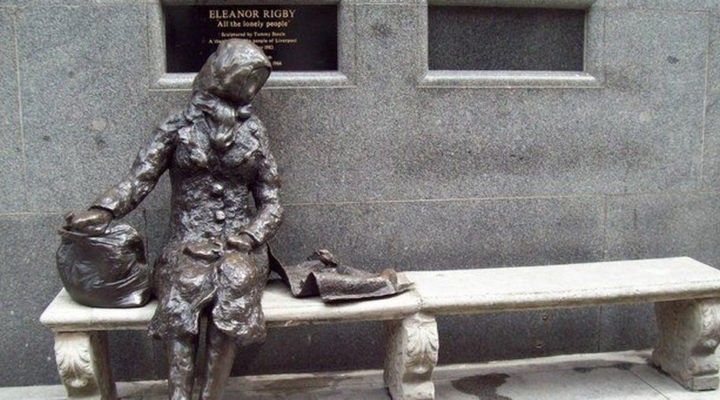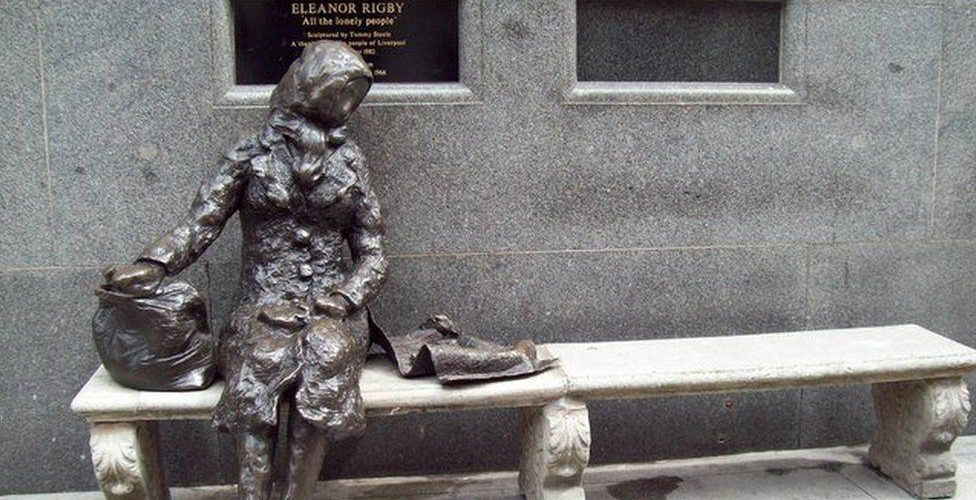I deliver Meals on Wheels on Fridays.
My routes vary, but the people I serve tend to be older, low-income, often disabled, living alone. That fits the profile of a typical Meals on Wheels client: The program seeks to assist seniors who are homebound, food-insecure and isolated.

Erich Bridges
The clients I visit appreciate the food — and the visit, however brief it may be. I try to smile, even though it’s usually behind a mask these days, and ask, “How’s it going?” or “You doing OK?” before moving on to the next stop. I might get a grumpy response occasionally, but most folks smile back and ask how I am. Sometimes we talk about the weather or our aches and pains.
One in five Americans was age 60 or older in 2020, and 12,000 more reach that milestone every day. One in four American seniors lives alone. One in four feels lonely, according to surveys. Nearly 10 million seniors faced hunger and isolation even before COVID-19 hit. Who knows how many there are now?
Older people going hungry in America bothers me. Older people suffering loneliness bothers me even more.
Every so often I read a news story about someone found dead in their home, decomposing in a chair or a bed because no one bothered to check on them until the smell became overpowering. Can’t we do better than this as a society?
But it isn’t just legions of aging boomers, and their even older parents, who feel alone. Blue-collar workers (especially men) left out of the modern economy often spiral into depression. Many die “deaths of despair,” drinking or drugging their lives away after multiple layoffs.
“Suicide is now the No. 2 cause of death on U.S. college campuses.”
College students suffer anxiety as they deal with being away from home for the first time, isolation and fears about their future. Some take their own lives before they’ve even really begun to live. Suicide is now the No. 2 cause of death on U.S. college campuses. Teens and 20-somethings, expert at interacting with technology, struggle to form face-to-face human relationships.
Then there’s the general fragmentation of our culture. People move from one place to another for work. They marry later or not at all. Nearly half of American marriages end in divorce or separation. Cohabitation is now socially acceptable but remains significantly less stable than marriage.
Remember “Eleanor Rigby,” the Beatles song about a lonely woman and an equally isolated priest? Eleanor “waits by the window, wearing the face that she keeps in a jar by the door. Who is it for?” Father McKenzie, meanwhile, writes the “words of a sermon that no one will hear. No one comes near.” Eleanor dies and is “buried along with her name. Nobody came. Father McKenzie, wiping the dirt from his hands as he walks from the grave. No one was saved. All the lonely people, where do they all come from? All the lonely people, where do they all belong?”
The Beatles wrote those bleak words more than 50 years ago. The developed world has become much more lonely since then. I suppose it’s the logical result of radical individualism, one of our chief idols.
“Personal independence is great, but it comes at a price.”
Personal independence is great, but it comes at a price. There’s something to be said for small towns, nosy neighbors and pushy relatives, once you no longer have them around. Japan and England now have government-appointed “ministers of loneliness” to address the social devastation of millions of people living in isolation.
It’s much the same in America, according to former U.S. Surgeon General Vivek Murthy. “During my years caring for patients, the most common pathology I saw was not heart disease or diabetes; it was loneliness,” he wrote in the Harvard Business Review in 2017. “Today, over 40% of adults in America report feeling lonely, and research suggests the real number may well be higher.”
Mother Teresa said it better: “The greatest disease in the West today is not TB or leprosy; it is being unwanted, unloved and uncared for. We can cure physical illness with medicine, but the only cure for loneliness, despair and hopelessness is love.”
Maybe your church needs a minister of loneliness. There were an estimated 34.75 million single-person households in the United States in 2019. That’s about 28% of all American households. Christians talk a good game about creating community. But unless they’re located near large populations of singles, such as colleges or military bases, churches are notorious for letting singles fall through the cracks of ministry.
“Christians talk a good game about creating community.”
Not all singles are lonely, and not all lonely people are single (I know folks who are desperately lonely in long-term marriages). But the two often go together. I remember when I arrived 40 years ago in the strange new city where I have lived ever since. I was excited about my fledgling career, but I was single, far from home and desperate for friendship. I found it with a caring pastor and his wife, who treated me like a son.
Later, I visited a church singles group, where I met my wonderful wife-to-be. After we got married and had kids, I quickly forgot what it was like to be lonely. As the years went by, I even got irritated with church singles complaining about being “left out.” When my wife died four years ago, however, I soon became reacquainted with loneliness and isolation. It gave me renewed empathy for others who face life alone.
Too bad it took painful personal experience to remind me of the needs of hurting people, especially other widowers. But I’m trying to pay attention now.
Who are the Eleanor Rigbys in your life?
Erich Bridges, a Baptist journalist for more than 40 years, retired in 2016 as global correspondent for the Southern Baptist Convention’s International Mission Board. He lives in Richmond, Va.
Related articles:
BNG panelists offer diagnosis and prescriptions for mental health during pandemic
Six lessons living with chronic illness has taught me about surviving a pandemic


